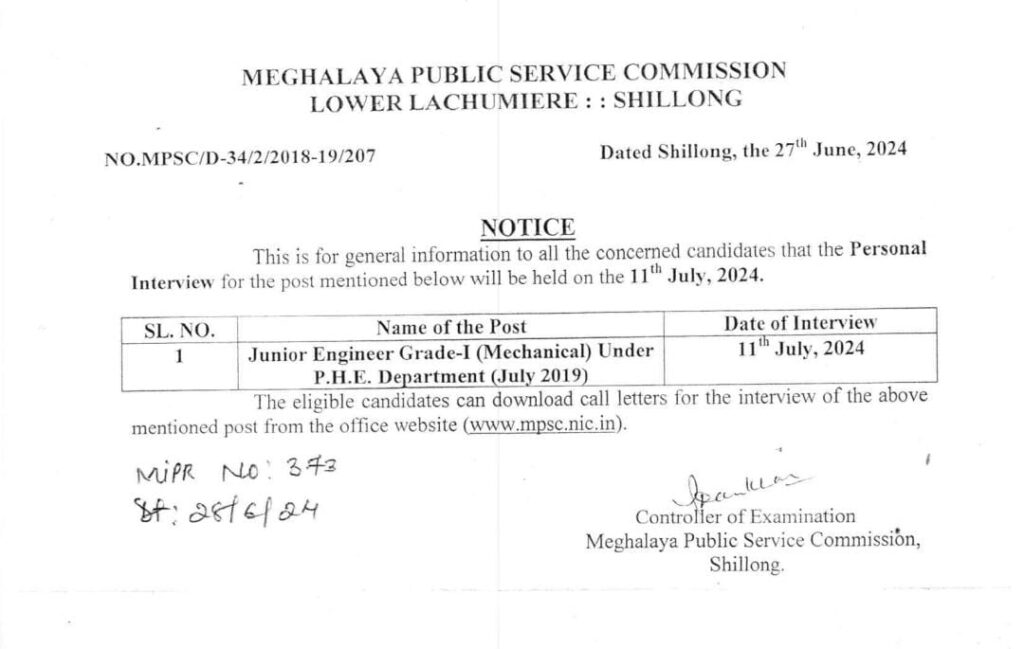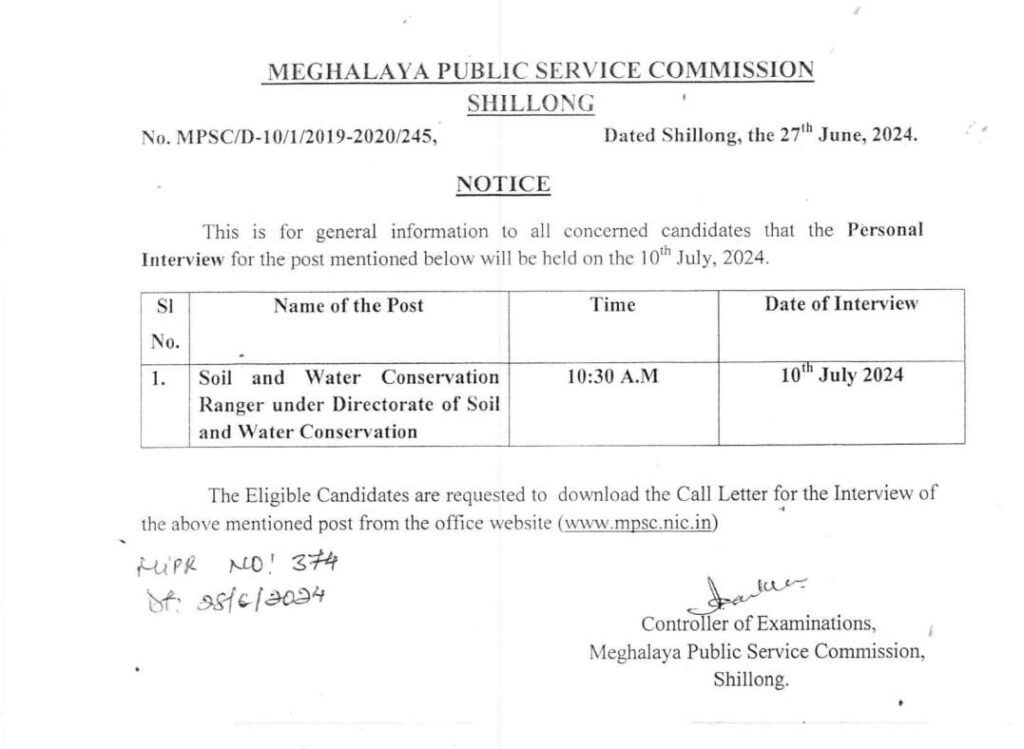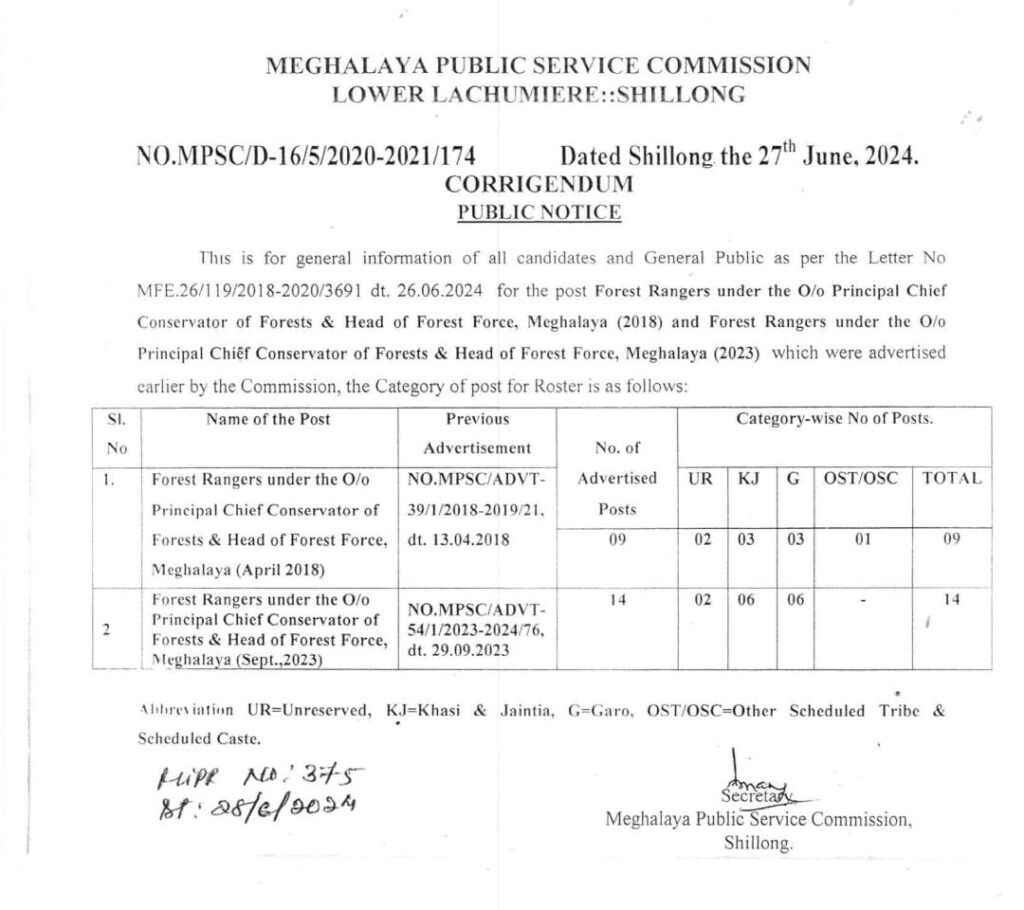Shillong, June 29: In a move to reform the criminal justice system, three newly enacted laws—the BNS, BNSS, and BSA—will come into effect from July 1, 2024. These laws, introduced in Parliament during its Monsoon session in August last year, will replace the colonial-era Indian Penal Code (IPC), the Code of Criminal Procedure (CrPC), and the Indian Evidence Act of 1872, respectively.
Bharatiya Nyaya Sanhita (BNS)
The BNS will replace the 163-year-old IPC, bringing significant changes to penal law. A notable introduction is community service as a form of punishment under Section 4, although the exact nature of the community service remains unspecified.

Sexual offences see stringent measures, with the law prescribing up to ten years of imprisonment and fines for those who engage in deceitful sexual intercourse by promising marriage without the intent to fulfil it. The new law also addresses deceit related to employment, promotion, or marriage by concealing one’s identity.
Organised crime faces comprehensive legal scrutiny, covering a broad spectrum of illegal activities including kidnapping, robbery, vehicle theft, extortion, land grabbing, contract killing, economic offences, cyber-crimes, and trafficking in persons, drugs, weapons, or illicit goods or services. Human trafficking for prostitution or ransom will face severe penalties, with crimes executed through violence, threats, intimidation, coercion, or other unlawful means met with stringent punishment.

For acts threatening national security, the BNS defines a terrorist act as any activity that threatens the unity, integrity, sovereignty, or economic security of India with the intent to strike terror among people.
The legislation also addresses mob lynching, stating that when a group of five or more persons commits murder on the grounds of race, caste, community, sex, place of birth, language, personal belief, or any similar ground, each member shall be punished with death or life imprisonment and a fine.

Bharatiya Nagarik Suraksha Sanhita (BNSS)
Replacing the Criminal Procedure Code (CrPC) of 1973, the BNSS introduces key changes in procedural law. One significant provision allows first-time offenders to get bail after serving one-third of their maximum sentence, except for life imprisonment or cases with multiple charges.
Forensic investigation is now mandatory for offences punishable by at least seven years of imprisonment, ensuring forensic experts collect and record evidence at crime scenes. If a state lacks a forensics facility, it shall use the facility in another state.
Key changes proposed in BNSS include timelines for various legal procedures:
• Medical practitioners examining rape victims must submit their reports to the investigating officer within seven days.
• Judgments must be delivered within 30 days of the completion of arguments, extendable up to 60 days.
• Victims must be informed of the progress of the investigation within 90 days.
• Sessions courts are required to frame charges within 60 days from the first hearing on such charges.
The CrPC established a hierarchy of courts for adjudicating criminal matters in India. These include Magistrate’s courts, Sessions courts, High courts, and the Supreme Court. The new Bill omits the provision allowing state governments to designate any city or town with a population of over one million as a metropolitan area.

Bharatiya Sakshya Adhiniyam (BSA)
The BSA, replacing the Evidence Act, introduces crucial updates, especially regarding electronic evidence. According to law professors Pranav Verma and Anupama Sharma from the National Law School of India University (NLSIU), the new bill streamlines rules on electronic evidence and expands the scope of secondary evidence. It requires detailed disclosure formats for electronic records, moving beyond mere affidavits.
Despite these advancements, the professors note that many changes involve “renumbering or restructuring of existing provisions,” suggesting that these could have been achieved through amendments rather than new legislation. They also highlight drafting errors and misplaced provisos that could cause confusion in the application of substantive law.

Union Home Minister Amit Shah introduced the three revised Bills in the Lok Sabha on December 12, 2023, to replace the existing British-era criminal laws. The government has sought time to train police officials and the judiciary in the new laws, with Union Territories under the Central government prioritizing this training, although similar enthusiasm was lacking in some states.
Section 106(2) of the BNS, concerning rash and negligent driving, has been kept in abeyance, honoring an assurance given to transporters’ associations. Currently, under Section 304A of the IPC, the punishment for causing death by negligence is two years imprisonment and a fine. The new section prescribes up to ten years imprisonment and a fine for escaping without reporting the incident.
These reforms mark a significant shift in India’s criminal justice system, aiming to modernize and make it more efficient, fair, and just. These acts focus on timely justice, victim-centricity, and gender neutrality.
Read: Early morning car collision in Tura
WATCH:
Find latest news from every corner of Northeast India at hubnetwork.in, your online source for breaking news, video coverage.
Also, Follow us on-
Twitter-twitter.com/nemediahub
Youtube channel- www.youtube.com/@NortheastMediaHub2020
Instagram- www.instagram.com/ne_media_hub





